How to Beat Your Post-Travel Depression: Your Guide to Feeling Better
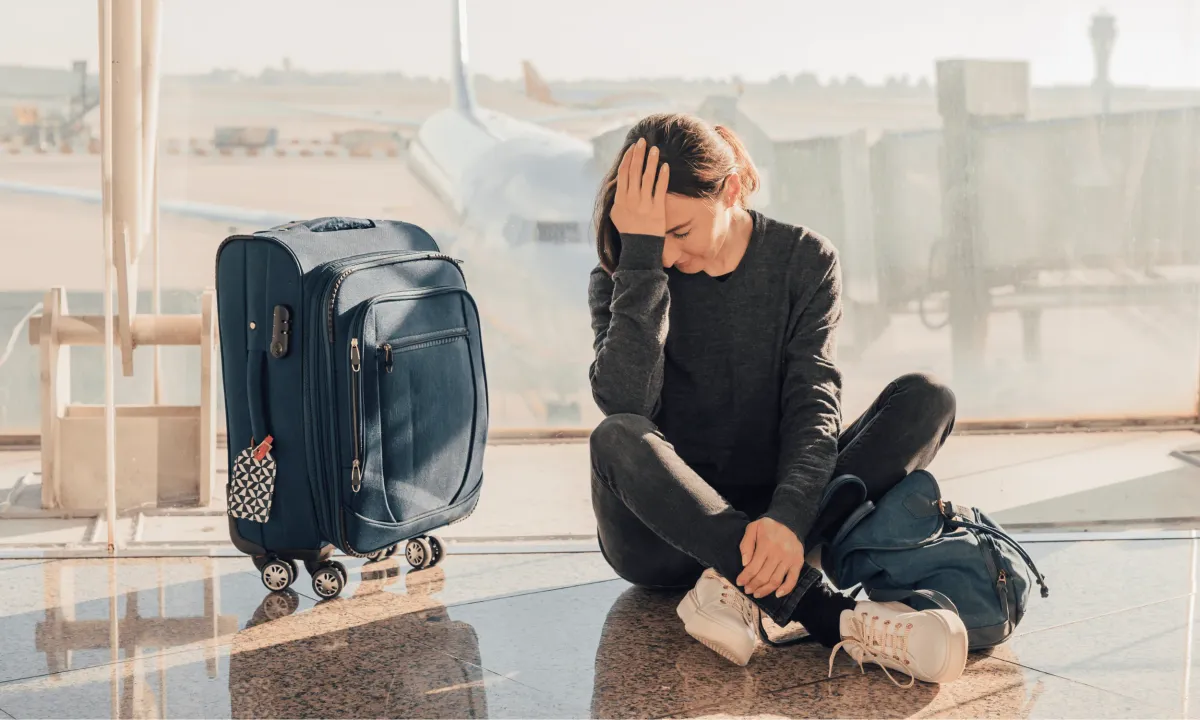
Going from exploring new places every day to feeling like you're chained to a desk can make you feel very low. It's one thing, though, to reminisce over your vacation for the first few days you're back home. It's another if you get the post-travel blues.
The what? I'm not talking about the usual dread of heading back to work after a long holiday, that feeling usually goes away quickly. I'm referring to a deeper kind of sadness, one that leaves you frustrated, demotivated, and even makes you question your life choices.
No matter how hard you try to slip back into your routine or focus on the day-to-day, your mind keeps taking you back to the trip you just experienced, or imagining your next adventure.
If this sounds familiar, you might be experiencing what is known as post-travel depression. And yes, post-travel depression is a thing. It's actually a state that affects many of us when we return home after a trip.
It happens to me, too. So, the good news is: you're not alone in this. In this article, I’ll explain what post-travel depression is, help you understand if you're experiencing it by laying out the symptoms to watch out for and give you some tried-and-tested tips on how to overcome it. Ready? Let's dive in.
What is post-travel depression?

Post-travel depression (PTD), aka post-travel blues, is a common mood dip that people experience after returning home from a trip. This type of depression isn't typically a clinical disorder, but it can involve feelings of sadness, anxiety, and disorientation as you transition back to everyday life from the slower pace of vacation.
When people come back to their usual routines after a break, it can feel emotionally challenging. The loss of freedom and spontaneity that often comes with traveling can make regular life seem overly structured or limited.
More often than not, there’s a mix of nostalgia coming from the experiences and life you were living abroad, and a lot of stress from having to settle back into the daily grind.
But the good news is, that, unlike clinical depression, this condition is temporary and it can usually be managed. The best way to get out of it is to find ways to integrate the positive aspects of travel into everyday life, like planning future trips, or going after new experiences that can give you similar feelings of excitement.
What are the symptoms of post-travel depression?
Think of all the times you've returned from a trip and had a rollercoaster of emotions that went from the excitement of telling your friends and family about swimming with turtles for the first time, to the high anxiety levels of having to return to the office. I bet this happens to you all the time (ok, maybe not on trips that went south, but they're probably just a few).
If these emotions just last a few days, it's completely normal to have them, I mean... who doesn't prefer to enjoy the world rather than deal with your client's requests? But, if these feelings persist, don't underestimate them by thinking they're just in your head, they're not. You're most probably experiencing symptoms of post-travel depression.
But why? We're so used to living in either work mode (Monday - Friday, 9am - 5pm) or relax mode (weekends, holidays, vacation), that we think switching modes back and forth is a normal part of life. But we don't realize that shifting from relaxation mode (especially after a longer vacation) to work mode, can trigger a mix of emotions and physical symptoms that make us feel down. And no, ignoring these feelings won't make them go away, it can make things worse.
So, how can you tell if you're actually dealing with post-travel depression or just a phase of post-travel nostalgia? Here are some signs to watch for:
Mental symptoms
- Apathy and emotional numbness
- Mental fog
- Difficulty concentrating, even on simple tasks
- Lack of initiative
- Restlessness
- Difficulties in making decisions
- Melancholy
- High anxiety levels
- Mood swings
- Low motivation
- Persistent sadness
- Physical Symptoms
Physical symptoms
- Exhaustion
- Muscle tension
- Unexplained fatigue
- Headaches
- Sleep disturbances, including insomnia
- Poor digestion
What are the causes of post-travel depression?

There are a bunch of factors that cause post-travel depression. These include physical symptoms like the impact of jet lag (you wouldn't believe how much having to re-regulate your sleep cycle can affect your mood), but most importantly, mental symptoms that are more often than not linked to how happy you are in your life back home.
According to Medical News Today, slipping back into an old routine—maybe one you're not in love with, to begin with—is a common trigger for post-travel depression.
And it makes sense. Society has been telling us to grind, make a living for ourselves, succeed no matter what. Up until a few years ago, the word "work-life balance" was considered a joke. But here's a reality check: we don't all have our dream job, or a sweet boss, or love the city we live in, or have the coolest friends. Maybe we don't love the reality and routine we have at home.
But when we travel, we have a second shot at creating the experience we want. We have the energy and desire to meet new people, have fun, try out a new sport we'd never do back home, and even learn to cook stuff. So much so that traveling has become the highlight in many people’s lives.
And even if you love your life back home, the tasks, responsibilities, and hectic pace that await you when you return are usually a source of stress. If you're in this box, the good news is you're probably going to experience the post-travel blues for a few days, then feel fine.
But for those of you who only feel alive when you're traveling, the gap between who you are during your travels and who you are at home can become so big that stress and depression hit hard. This can make readjusting to everyday life not just a challenge, but a severe emotional struggle.
How to manage post-travel depression
Now that I've discussed what post-travel depression is and what usually triggers it, let's focus on how to handle it and move past these symptoms.
I'll share 7 practical tips to help you deal with post-travel depression. Take notes and see which of these might work best for you.
1. Plan your return trip thoughtfully
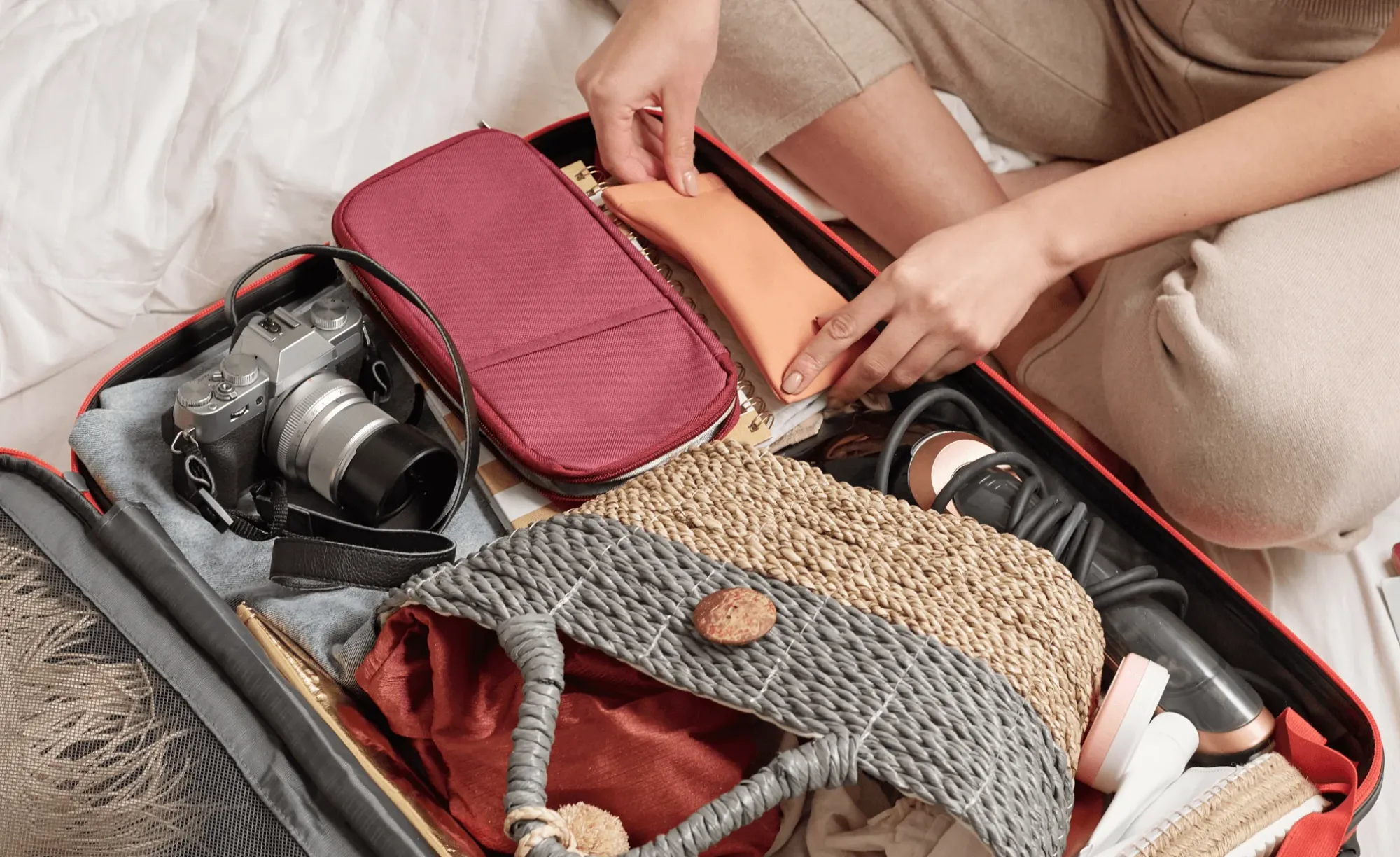
This tip is all about preventing that mess and stress you often feel when you get back home.
When you're traveling, you don't want to feel rushed. So why would you want to feel rushed when you're packing before boarding on your return flight? All that rush to make it in time to the airport, with the constant worry if you forgot something in your accommodation can seriously ruin all the relaxation you accumulated up until that point.
Instead of just throwing all your clothes in your luggage, take your time to plan your trip and pack without feeling rushed. This approach turns packing into a calming ritual that keeps the chaos at bay, not just when you're unpacking but also as you start thinking about heading home. Plus, it helps you ease back into your everyday life without feeling like you've been thrown back into it all of a sudden.
2. Plan to return home a few days early
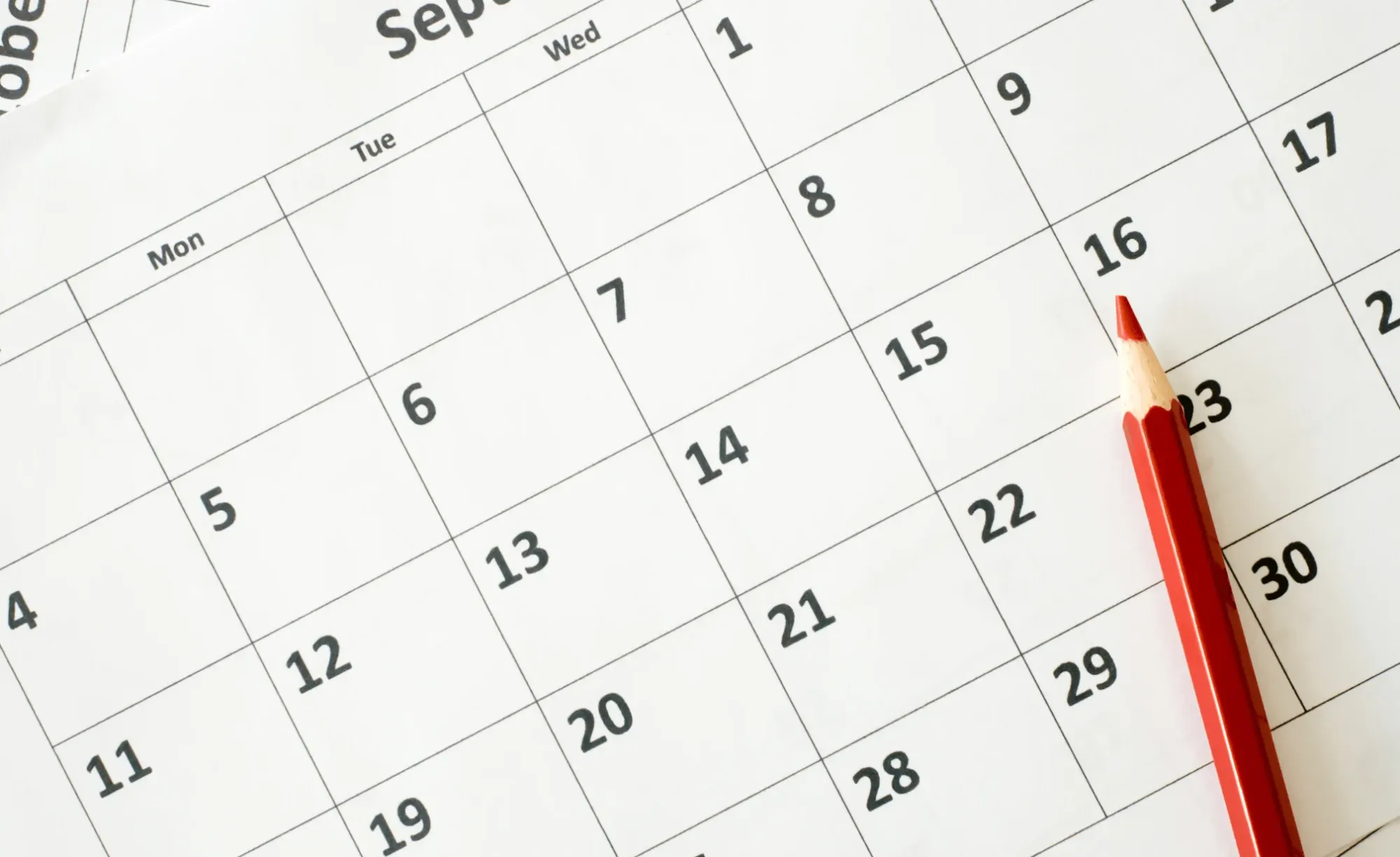
Yes, vacation time is precious, and it might seem hard to give up even a single day. But trust me, if you want to make your transition smooth and avoid feeling those post-travel blues, it's a must your return a few days early.
I have a friend who always plans his return flights a few days before the weekend, that way he has the whole weekend plus one or two days to readjust and get his mind and body ready to switch back from relax mode to work mode. Trust me, you don't want to go from spotting lions on a safari to replying to those "out of office" emails the day after you return from your trip.
Giving yourself some days to unwind after you return will give you some extra time to organize your routine without the added stress. Not to mention, it allows you to ground yourself again.
3. Stay active
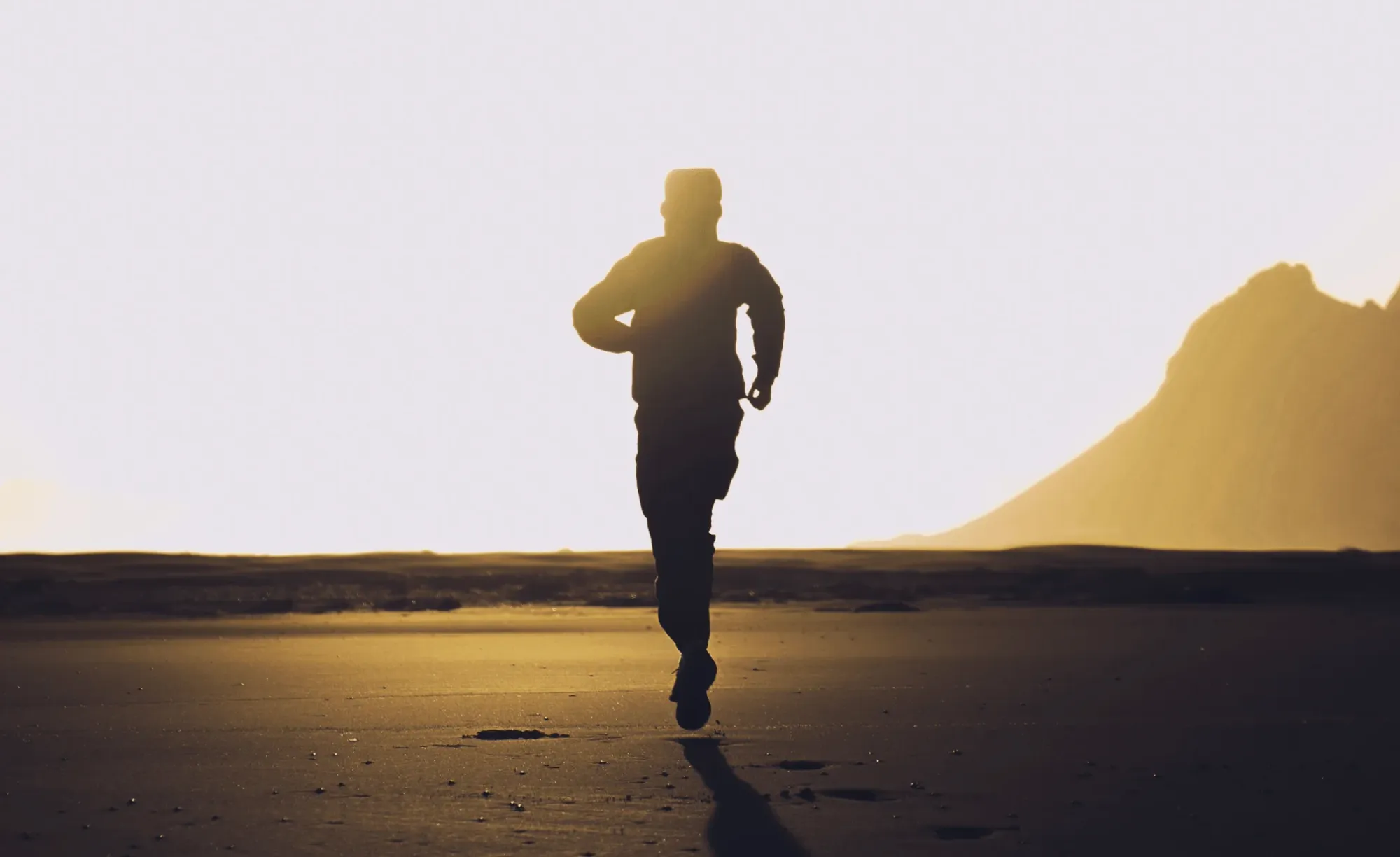
I bet you probably spent your travels exploring new places, hiking in beautiful areas, getting your dose of vitamin sea in some tropical destination. Now, I'm pretty sure the Monday right after you return from your travels will most likely be you sitting in front of a desk for countless hours.
We don't need an expert to tell us the routine you had while traveling was healthier for your body than the one you probably have at home. That's why it's essential for you to keep moving and stay active once you're back. Even if you're a couch potato, get up and start moving! Harvard Medical School reported that a recent study found that "Running for 15 minutes a day or walking for an hour reduces the risk of major depression." So, the third trick to beat post-travel depression is easy: get up and move.
4. Pay attention to your diet

Have you seen the Netflix docu-series "You Are What You Eat?" Me either. But I don't need to watch it to tell you the title nails my next piece of advice.
If you've spent the last few weeks traveling the world, chances are your diet was better than the one you're used to at home. The Standard American Diet — aka SAD (I know, the acronym says it all) — lacks the right amounts of fresh fruits, vegetables, whole grains, lean proteins, and healthy oils other diets are known for. Instead, it's excessively high in red meat, high-fat dairy products, processed and fast foods, added sugars, etc.
But even if you think your body is craving a burger, trust me, especially if you're feeling low, it's best to go for fresh, plant-based foods, like berries—which are good sources of antioxidants. Because believe it or not, eating balanced meals can boost your mood, help you sleep better, and shake off some of those stress-related symptoms of post-travel depression.
5. Keep traveling
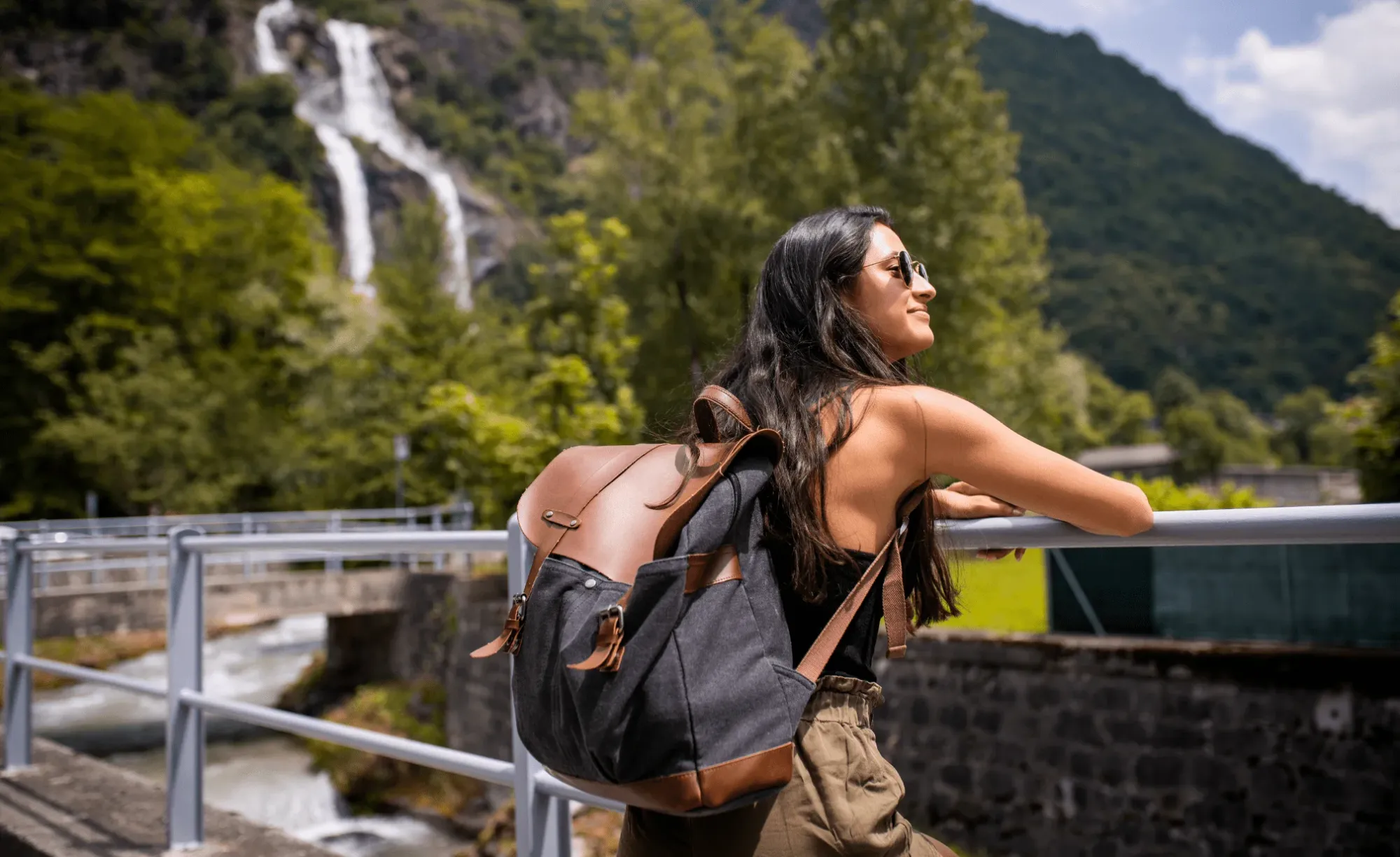
Just because you're back from a trip doesn't mean you have to plunge straight into work and responsibilities. Think of it this way: one adventure has just ended, and now you've got the chance to start planning the next one.
If you're constantly thinking about traveling, why not begin planning out your next trip, weekend getaway or even day trip to explore some local spots you've never been to before? I'm pretty sure there's a hidden gem just around the corner that could be perfect for next weekend. Keep that traveler’s spirit alive!
If instead you want to pamper yourself, maybe look up a day spa in your area or a laid-back spa package.
6. Ease back into your routine
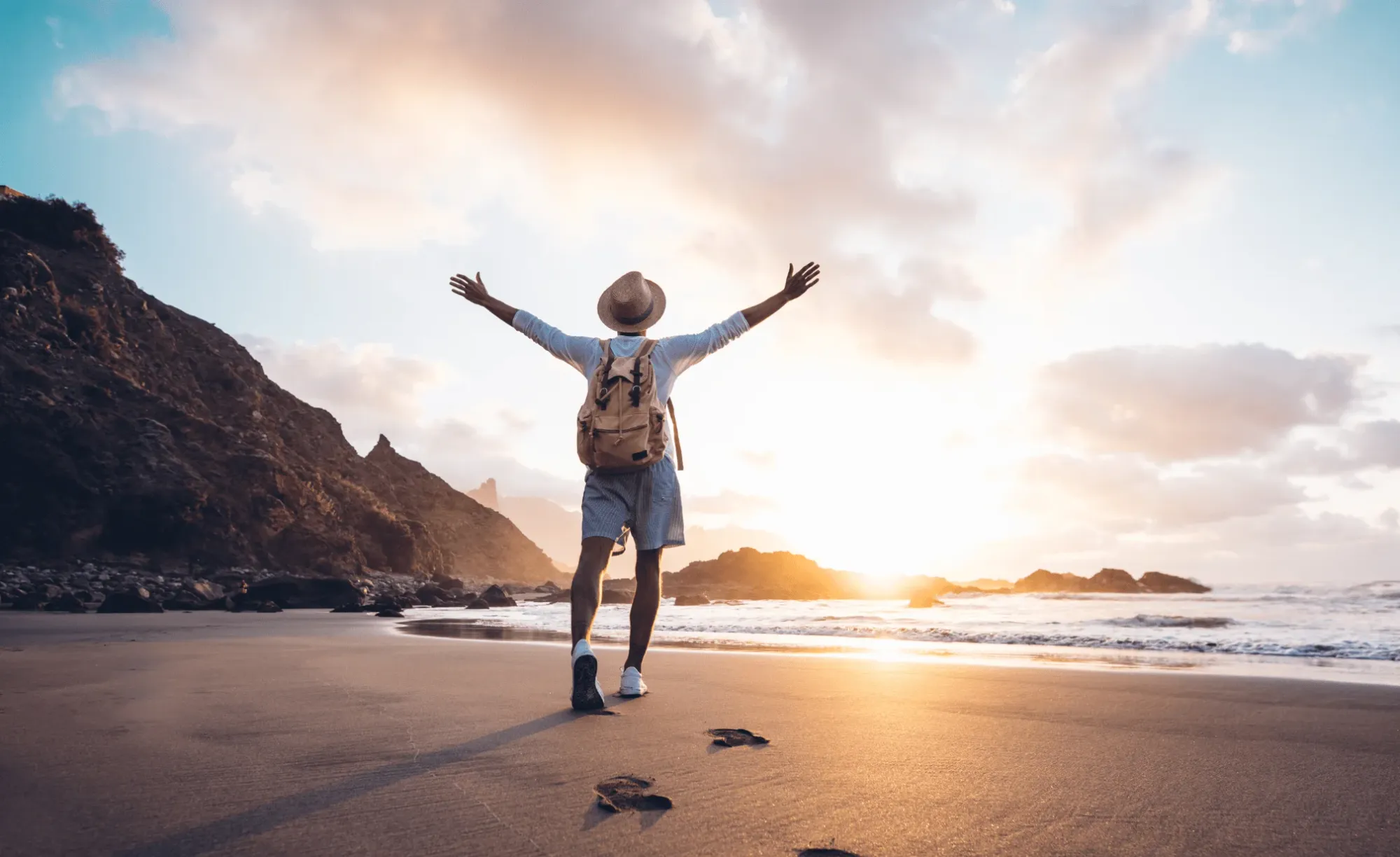
This one goes hand-in-hand with planning your return a few days early. Again, you may not think going from exploring to working could have any effect on your mood, but it definitely does.
Instead of going through a checklist of to-dos as soon as you get back, ease back into your daily routine. Take your time and allow yourself some moments to just breathe and detach. You're human, after all. If you have loads of things to do, instead of freaking out about the amount of workload that's waiting for you, set some small, realistic goals for the coming days and weeks to make your transition smoother.
7. Spend time with people who matter
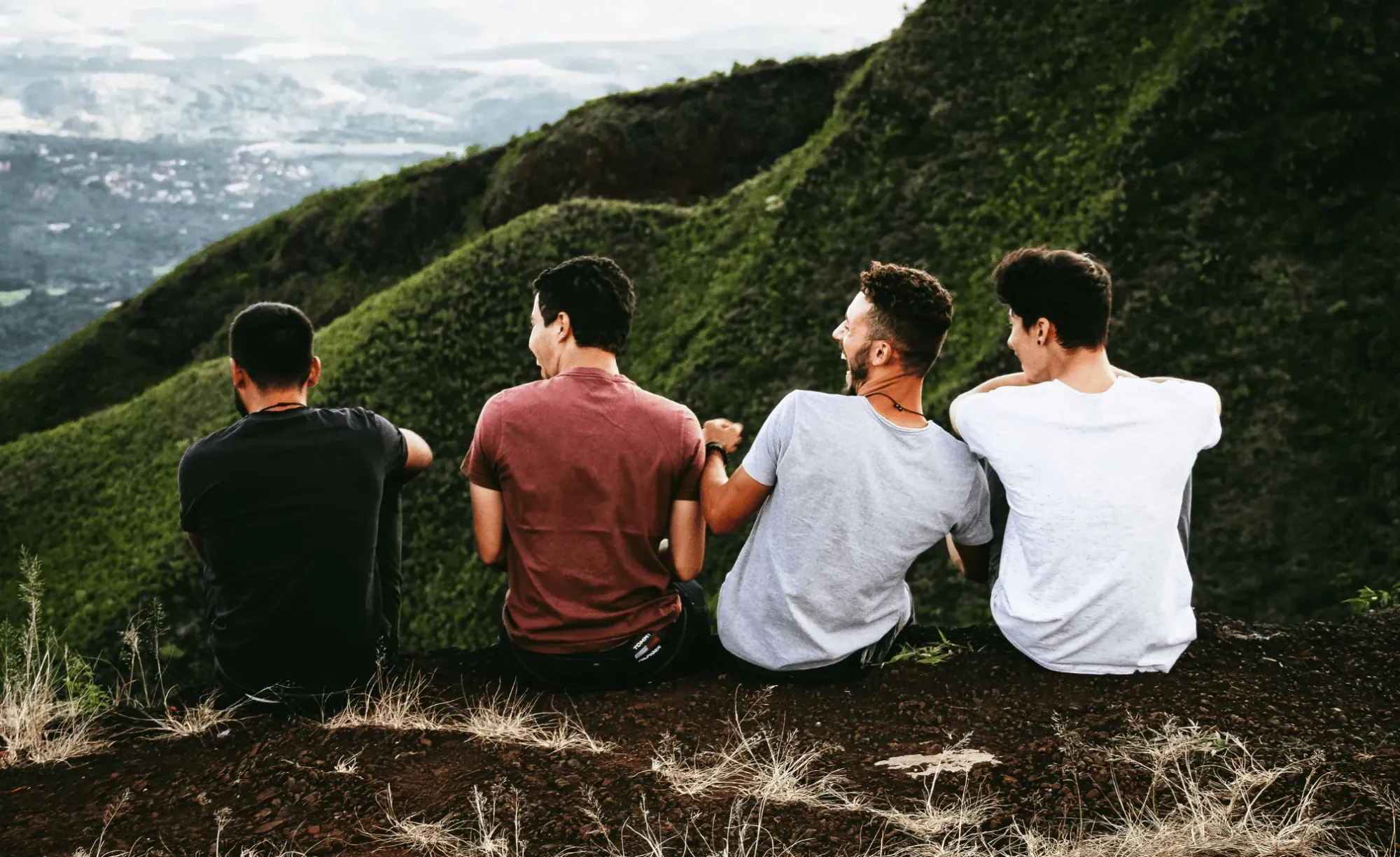
Skip posting everything on your Instagram stories and instead meet up with your friends and family to tell each other about the adventures you had while traveling. Remember your swimming with turtles for the first time experience? Share it with them! Reach out to the people that matter in your life and plan a day out, hang out, or just grab dinner and some drinks together.
Remember, if you're experiencing any of the post-travel depression symptoms I mentioned before, the last thing you should do is isolate yourself! I know that keeping to yourself might be what you think you want but being alone won’t do any favors for your mood.
I’ve tried to soldier through on my own before, and it just made things worse. Trust me, being around people who care about you can really lift your spirit.
Wrapping up
So here they are, the seven tips that can really help with post-travel depression. If you're experiencing post-travel depression right now, don't worry, we've all been there. As in everything, learning how to deal with these emotions comes with experience. But there’s one more thing I want to talk to you about, something a bit more serious.
If you've been feeling really low for a while now, noticing that these tips aren’t helping much, and you’re stuck in a phase of sadness or depression, it might be a good idea to talk to someone about it.
I know, it's tough to admit sometimes, but feeling down after returning from a trip isn’t unusual, and it’s definitely not something to feel embarrassed about. I’ve been there, and I know many others have too. That’s actually why I wrote this article—I wanted to give some tips that can help you make your transition back home less stressful.
But if you’re really struggling and can’t seem to shake it off, please think about getting some professional help. Taking care of your mental health is super important remember, with the right approach, it’s completely possible to easily bounce back from post-travel depression.
Ready to beat the post-travel blues?
If you want more digital nomad guides like these, sign up for our free newsletter and get upcoming articles straight to your inbox!
Freaking Nomads is supported by you. Clicking through our links may earn us a small affiliate commission, and that's what allows us to keep producing free, helpful content. Learn more



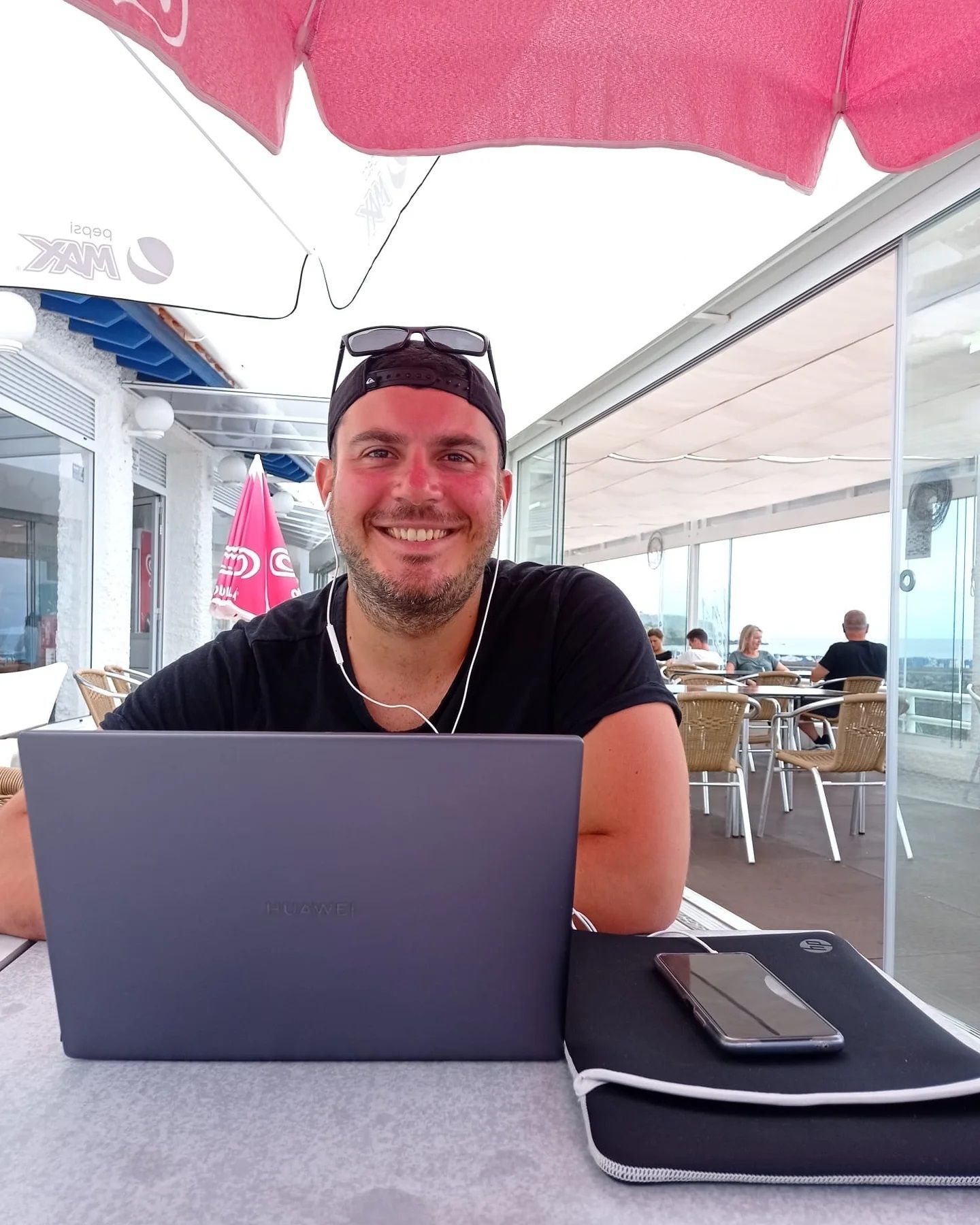
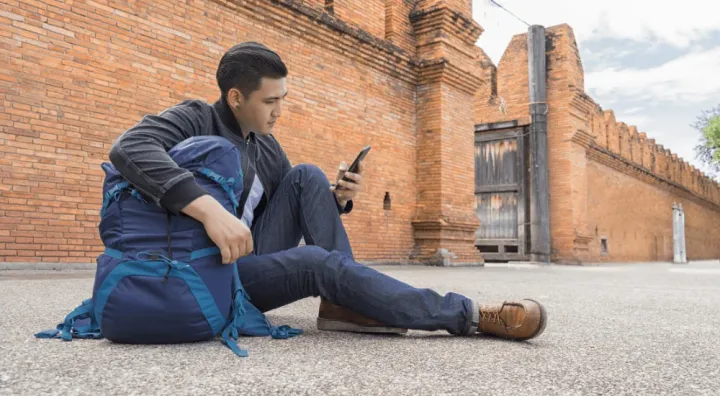


 Travel tips, hacks, and news
Travel tips, hacks, and news Exclusive travel discounts
Exclusive travel discounts Offers and promotions
Offers and promotions Digital nomad inspiration
Digital nomad inspiration Latest articles form our blog
Latest articles form our blog
Comments ()